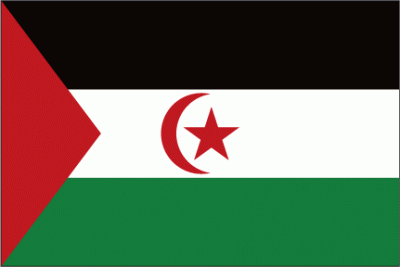
Western Sahara: Big Oil eyes Arab world's "other" occupied territory

The latest round of unofficial UN-brokered Western Sahara negotiations between Morocco and the Polisario Front ended without agreement last week, the Pentagon Africa Command's Magharebia news site reports July 25. The eighth round of informal talks wrapped up July 21 in Manhasset, Long Island. "By the end of the meeting, each party continued to reject the proposal of the other as the sole basis for future negotiations, while reiterating their willingness to work together to reach a political solution in conformity with the pertinent resolutions of the United Nations Security Council," said UN Western Sahara envoy Christopher Ross.
The UN News Centre on July 22 took a more optimistic spin, emphasizing plans to resume the dialogue after the autumn session of the UN General Assembly. “In order to find a just, lasting and mutually acceptable political solution, which will provide for the self-determination of the people of Western Sahara […] the parties continued to deepen their discussions on the two proposals, including the issue of the electoral corps, mechanisms for self-determination, and the forms of guarantees,” said a statement issued by the office of the Secretary-General’s Special Representative for Western Sahara, Christopher Ross.
Rabat has meanwhile signed contracts with foreign oil companies to explore in the occupied territory. The British firm Longreach and Ireland's San Leon have announced that seismic studies were launched in Western Sahara this month. The study is being conducted in a 600-kilometer area of the Tarfaya and the Zag blocks. Both blocks are mostly located in Western Sahara, and Polisario maintains the operation violates international law. The study is being overseen by the Warsaw-based Novaseis, which was recently acquired by San Leon. Novaseis's involvement in Baltic Sea explorations may explain why the firm has received investment from mega-financier and international philanthropist George Soros. San Leandro holds six licenses in Poland's Baltic Basin, where Soros has invested heavily in oil explorations. (Western Sahara Resource Watch, July 27)
Despite the ceasefire, Morocco maintains a heavy military presence in the occupied territory. On July 26, a Moroccan C-130 military transport plane crashed into a mountain while preparing to land at Guelmim air base in southern Morocco, near the border of Western Sahara. Of the 81 on board, 78 were killed. The plane due to make a stop at Guelmim en route from Dakhla, in the Western Sahara, to Kinitra, in northern Morocco. (The Guardian, July 26)

